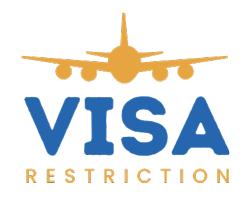Is It Safe to Travel to China: Current Status

Safety Considerations in China
When considering “is it safe to travel to China,” addressing key safety factors is essential. This section covers health precautions, water safety, and animal encounters to help ensure a safe trip.
Health Precautions
Ensuring your health and safety is paramount. Here are some essential health precautions:
- Vaccinations: Ensure you are up-to-date with routine vaccinations such as MMR and DTAP. Consult your doctor about vaccines specific to China, like Hepatitis A and Typhoid.
- Mosquito Protection: Insect bites can transmit diseases. Use insect repellent containing DEET and wear long sleeves and pants in mosquito-prone areas.
- Personal Medication: Carry sufficient quantities of your prescription medications, along with the necessary documentation.
If you need medical assistance, refer to our section on seeking medical attention.
Water Safety
Tap water in China is not safe to drink, even in major cities (CDC Travel). Bottled water is the recommended option.
| Source | Drinkable | Alternative |
|---|---|---|
| Tap Water | No | Bottled Water |
Precautions include:
- Avoiding ice in drinks, as it may come from tap water.
- Using bottled or boiled water for brushing teeth.
- Consuming only bottled, canned, or packaged beverages.
To minimize health risks, also be aware of schistosomiasis, a parasitic infection found in fresh water. Avoid swimming in unchlorinated water like lakes, ponds, or rivers (CDC Travel).
Animal Encounters
While most animals in China avoid people, there can be risks if they feel threatened or are protecting their territory. Animal bites and scratches can lead to serious diseases such as rabies (CDC Travel).
Guidelines for animal encounters:
- Avoid approaching or feeding stray animals.
- Be cautious in rural areas where you might encounter wildlife.
- Seek immediate medical attention if bitten or scratched.
By following these health, water, and animal encounter precautions, you can enhance your safety while traveling in China. For additional travel advisories, visit our section on Travel Advisory for U.S. Citizens.
Road Safety and Transportation
When considering the question, “is it safe to travel to China,” it’s essential to understand the aspects of road safety and transportation within the country. This section covers motor vehicle safety and tips for using public transportation.
Motor Vehicle Safety
Motor vehicle crashes are the leading cause of death for healthy American travelers abroad, according to CDC Travel. Whether you are driving yourself or relying on taxis and ride-sharing services, it’s crucial to be aware of the local road conditions and traffic regulations.
It’s recommended to use seat belts at all times and avoid driving at night due to the higher risk of accidents. Additionally, always ensure that the driver is licensed and the vehicle is well-maintained. Here are some key points to consider:
- Seat Belt Use: Always wear your seat belt.
- Avoid Night Driving: Higher accident risk in the dark.
- Licensed Drivers: Ensure your driver is credible.
- Well-Maintained Vehicles: Inspect taxis for condition.
| Safety Measure | Importance |
|---|---|
| Seat Belt Use | High |
| Avoid Night Driving | High |
| Licensed Drivers | Medium |
| Well-Maintained Vehicles | Medium |
Public Transportation Tips
China offers a comprehensive public transportation system, including buses, subways, and trains, particularly in major cities like Beijing and Shanghai. The public transportation network is generally safe and efficient.
- Subways: Major cities like Beijing and Guangzhou have removed the mandatory mask requirement on public transport (China Briefing). However, it’s still a good practice to carry a mask and hand sanitizer.
- Buses: Buses are a popular option, but they can get crowded. Keep your belongings close and be mindful of pickpockets.
- Trains: Trains in China are a great way to travel between cities. High-speed trains are particularly efficient and comfortable.
Here are some practical tips:
- Carry a Mask: Even if not mandatory, it’s a good practice.
- Secure Belongings: Be cautious of pickpockets.
- Choose High-Speed Trains: For efficient intercity travel.
| Public Transport | Safety Tips |
|---|---|
| Subways | Carry a mask |
| Buses | Secure belongings |
| Trains | Prefer high-speed options |
For more practical advice on traveling in China, explore our article on tips for traveling to China. Always prioritize your safety and enjoy the rich culture, history, and sites China has to offer.
Health and Medical Care
Malaria Prevention
When considering is it safe to travel to China, it’s important to be aware that malaria is a risk in certain parts of the country. If you plan to visit a malaria-risk area, make sure to fill your malaria prescription before you leave and take enough medication for the entire duration of your trip (CDC Travel). This precaution is crucial to protect yourself from malaria, which is transmitted by mosquitoes.
Here are some steps for malaria prevention:
- Medication: Utilize prescribed antimalarial drugs.
- Protective Clothing: Wear long-sleeved shirts and pants.
- Mosquito Repellent: Use insect repellent containing DEET.
- Netting: Sleep under a mosquito net, especially in risk areas.
If you develop a fever while in a malaria-risk area or after returning home (up to one year), seek immediate medical attention and inform the doctor of your recent travel history (CDC Travel).
Seeking Medical Attention
In case you need medical care while in China, it’s important to know your options and prepare accordingly. China’s healthcare system offers a range of services, from local clinics to advanced hospitals, especially in urban areas.
Here’s what you should know:
- Insurance: Ensure you have comprehensive travel insurance that includes medical coverage.
- Language Barrier: Consider the language barrier; having Chinese phrases or a translation app can be helpful.
- Reputable Facilities: Opt for well-known international hospitals or clinics.
- Emergency Numbers: Keep handy the emergency contact numbers and addresses of nearby hospitals and medical centers.
For more information on dealing with common medical issues while traveling, you might also find our articles about is it safe to travel to thailand, is it safe to travel to morocco, and is india safe to travel helpful.
Being prepared and aware of the health and medical care options can greatly enhance your travel experience in China. For additional practical tips on travel safety and more, visit our practical tips for travelers.
COVID-19 Updates in China
The COVID-19 pandemic has raised significant concerns for travelers considering visiting China. Understanding the country’s response and vaccine development can help you make informed decisions.
Pandemic Response
China effectively controlled the COVID-19 outbreak within two months through aggressive containment measures. These strategies included strict lockdowns, mass testing, and extensive contact tracing, which allowed work and school activities to resume promptly (NCBI).
One of the key measures was the mobilization of 346 medical teams, totaling 42,600 medical professionals, to support Hubei province in improving healthcare capacity. Furthermore, China implemented a color-based health QR code system for contact tracing. This system reached over one billion users and displayed 24 billion cumulative codes within a year of its launch (NCBI).
| Key Measure | Impact |
|---|---|
| Mobilization of Medical Teams | 346 teams, 42,600 people |
| Health QR Code System | 1 billion users, 24 billion codes displayed |
| Wuhan Travel Ban | Delayed COVID-19 arrival in 130 cities by 2.9 days |
The Wuhan travel ban, specifically, was associated with delaying the arrival of the virus in over 130 cities across China by an estimated 2.9 days, providing crucial time to prepare and combat the spread of the virus (NCBI).
Vaccine Development
China has also been at the forefront of COVID-19 vaccine development. The country developed the world’s first inactivated COVID-19 vaccine within 98 days from research to clinical trial approval. To date, over 1.9 billion doses of COVID-19 vaccines have been administered in China.
| Vaccine Type | Development Time | Doses Administered |
|---|---|---|
| Inactivated COVID-19 Vaccine | 98 days from research to clinical trial approval | 1.9 billion |
For more discussions on travel safety during the pandemic, consider reading is it safe to travel to mexico or is it safe to travel to egypt.
Staying updated with China’s pandemic response and vaccine rollout is imperative when considering is it safe to travel to china. Be sure to follow all relevant health guidelines and advisories for a safe travel experience.
Travel Advisory for U.S. Citizens
When considering whether it is safe to travel to China, it is crucial for U.S. citizens to stay updated on the latest travel advisories and legal guidelines. Here are key considerations based on current information.
Department of State Warnings
The U.S. Department of State has flagged mainland China as a Level 3: Reconsider Travel destination due to the risk of arbitrary enforcement of local laws, including issuance of exit bans and the potential for wrongful detentions (travel.state.gov). Key points to be aware of include:
- Exit Bans: U.S. citizens may face exit bans, preventing them from leaving China. These bans can be issued without a transparent legal process.
- Wrongful Detentions: There have been instances of U.S. citizens being detained and interrogated without access to U.S. consular services.
- State Secrets and Prosecutions: Materials considered as state secrets by the Chinese government can lead to detentions. Foreign nationals, including U.S. citizens, have faced scrutiny and potential prosecution for activities like conducting research or accessing publicly available information.
| Advisory Level | Reason |
|---|---|
| Level 3: Reconsider Travel | Arbitrary enforcement of local laws, wrongful detentions, exit bans |
For travelers looking for advisories on other destinations, check out our articles on is it safe to travel to Mexico and is Cancun safe to travel.
Legal Considerations
Understanding the legal environment in China is essential for ensuring a safe trip. The People’s Republic of China (PRC) laws can be significantly different and often more stringent compared to U.S. laws. Key legal considerations include:
- Scrutiny of Electronic Communications: Sending private electronic messages critical of the Chinese government can lead to detention and deportation.
- Dual Nationality: China does not recognize dual nationality. Dual U.S.-PRC citizens or U.S. citizens of Chinese descent may face additional scrutiny if traveling on non-U.S. documents.
- Drug Laws: Consuming or possessing drugs is met with severe penalties, including detention, fines, deportation, and a ban from re-entering China. The government may compel drug testing through blood, urine, or hair samples (travel.state.gov).
| Legal Concern | Details |
|---|---|
| Electronic Communications | Risk of detention for messages critical of the government |
| Dual Nationality | Not recognized; may lead to increased scrutiny |
| Drug Laws | Severe penalties, including mandatory testing and deportation |
For further insights on travel safety in various destinations, you can visit our articles on is it safe to travel to Jamaica, is Brazil safe to travel, and is it safe to travel to Turkey.
Staying informed about the latest travel advisories and legal expectations can help you navigate potential risks when traveling to China. Ensure you review all relevant information before planning your trip to stay safe and compliant with local laws.
Practical Tips for Travelers
Cultural Differences
Adjusting to China’s cultural landscape can enhance your travel experience while ensuring you respect local customs. Understanding and adapting to cultural differences is a key aspect of answering the question “is it safe to travel to China.”
Respect for Authority
China has a high regard for authority and hierarchy. Be mindful of showing respect to elders and officials. When addressing someone, use their title and surname.
Social Etiquette
- Greetings: Handshakes are common, but a nod or slight bow is also acceptable.
- Gift Giving: Gifts are given with both hands and typically wrapped. Avoid black or white wrapping, as they are associated with funerals.
- Dining: Wait to be seated by the host, and sample all dishes if dining with locals. Avoid sticking chopsticks upright in your bowl, as it resembles a funeral practice.
Dress Code
Dress modestly and appropriately for the occasion. In religious or historical sites, conservative attire is recommended.
By understanding and respecting these cultural differences, you can navigate social interactions smoothly. For more tips on safe travel, visit our article on is it safe to travel to egypt.
Technology and Payment Methods
China is at the forefront of technological advancements, with many daily activities facilitated through digital platforms. Adapting to the local tech landscape can make your travel experience seamless.
Mobile Payments
Cash is becoming obsolete in China. Mobile payment methods such as WeChat Pay and Alipay dominate the marketplace. It is advisable to set up one of these payment methods if you plan an extended stay.
| Payment Method | Popularity | Usage |
|---|---|---|
| WeChat Pay | High | Everyday transactions, shopping, dining |
| Alipay | High | Online purchases, transportation |
Setting Up: You will need a Chinese bank account to use these services, although some vendors accept foreign credit cards linked to these platforms.
Translation Apps
Communication might be a challenge if you do not speak Mandarin. Translation apps like Google Translate or WeChat’s built-in translator can be extremely helpful.
| App Name | Function | Rating |
|---|---|---|
| Google Translate | Text and voice translation | 4.6 |
| WeChat Translator | Conversational translation | 4.4 |
Offline Mode: Ensure your translation app works offline for areas with limited internet access.
VPNs
Many websites and social media platforms, such as Facebook and Google, are blocked in China. Consider using a VPN to access these services. However, be aware that the use of VPNs may draw scrutiny from authorities.
For more insights on travel safety regarding technology and other regions, check out our articles on is it safe to travel to japan and is it safe to travel to india.
By familiarizing yourself with these practical tips, including cultural nuances and technological adjustments, you can enhance your travel experience to China while staying safe and informed.






